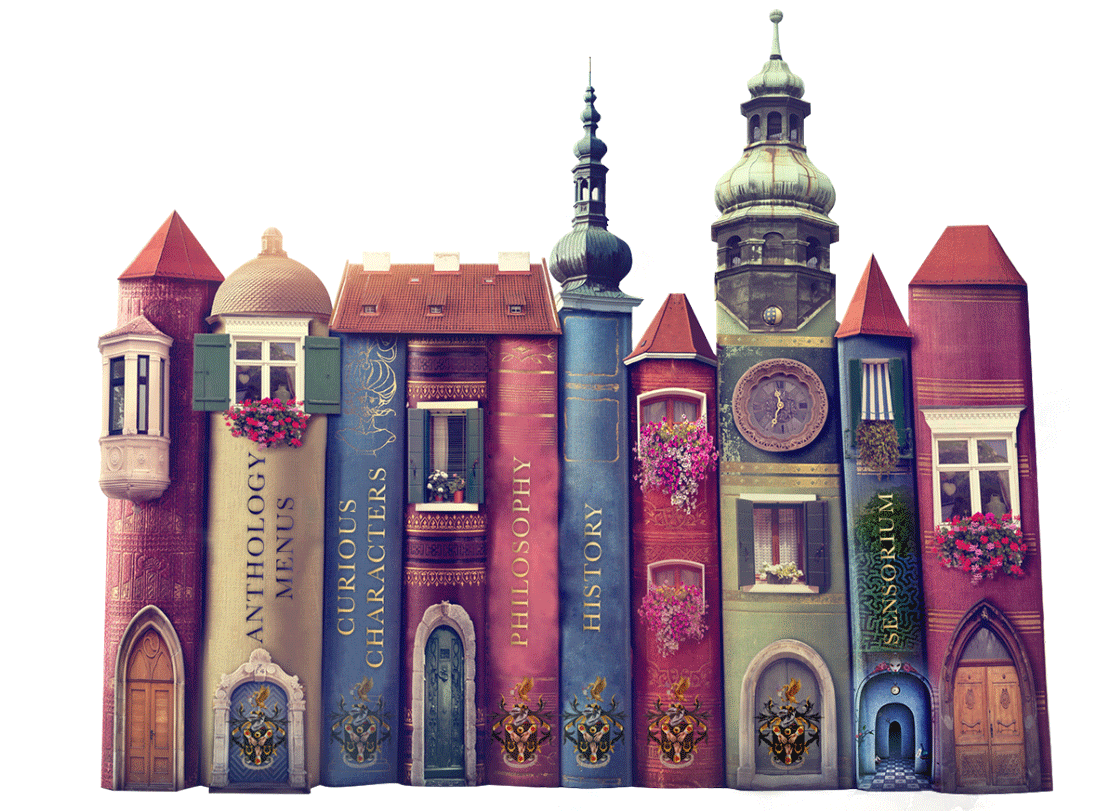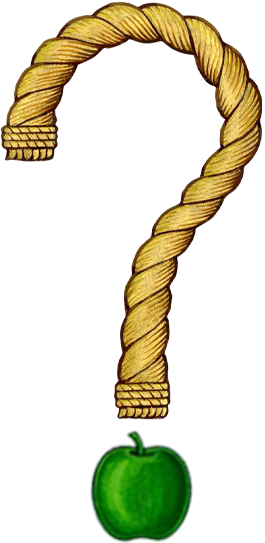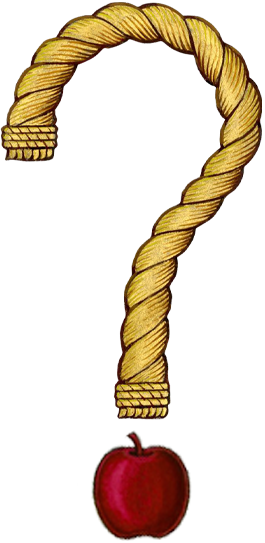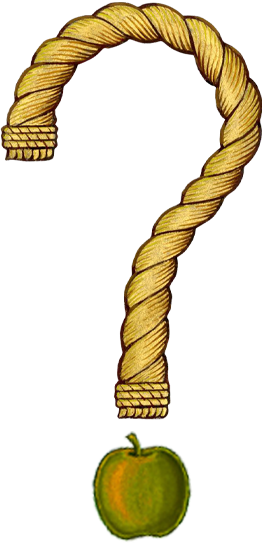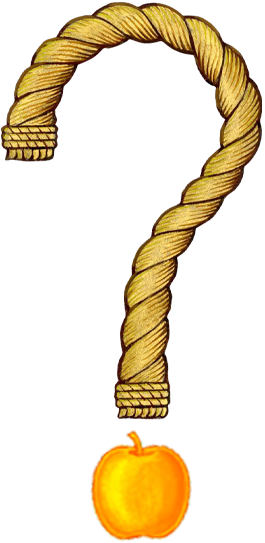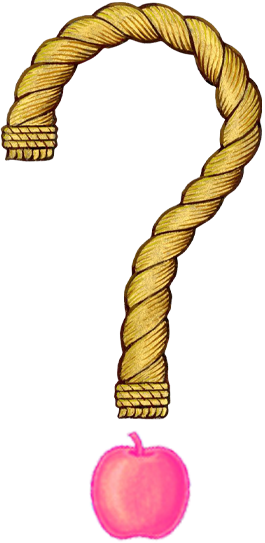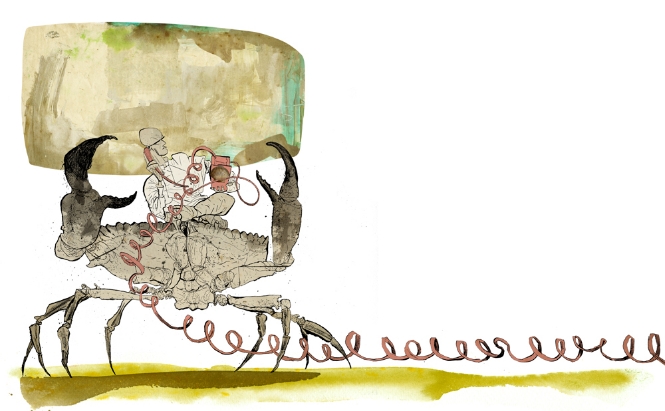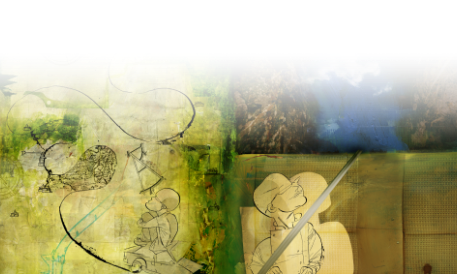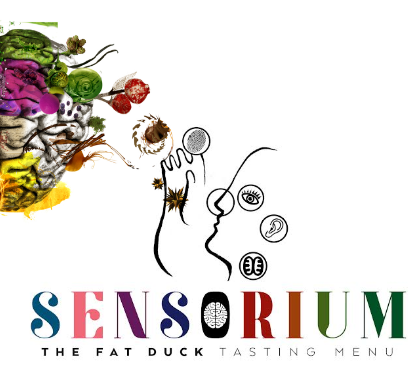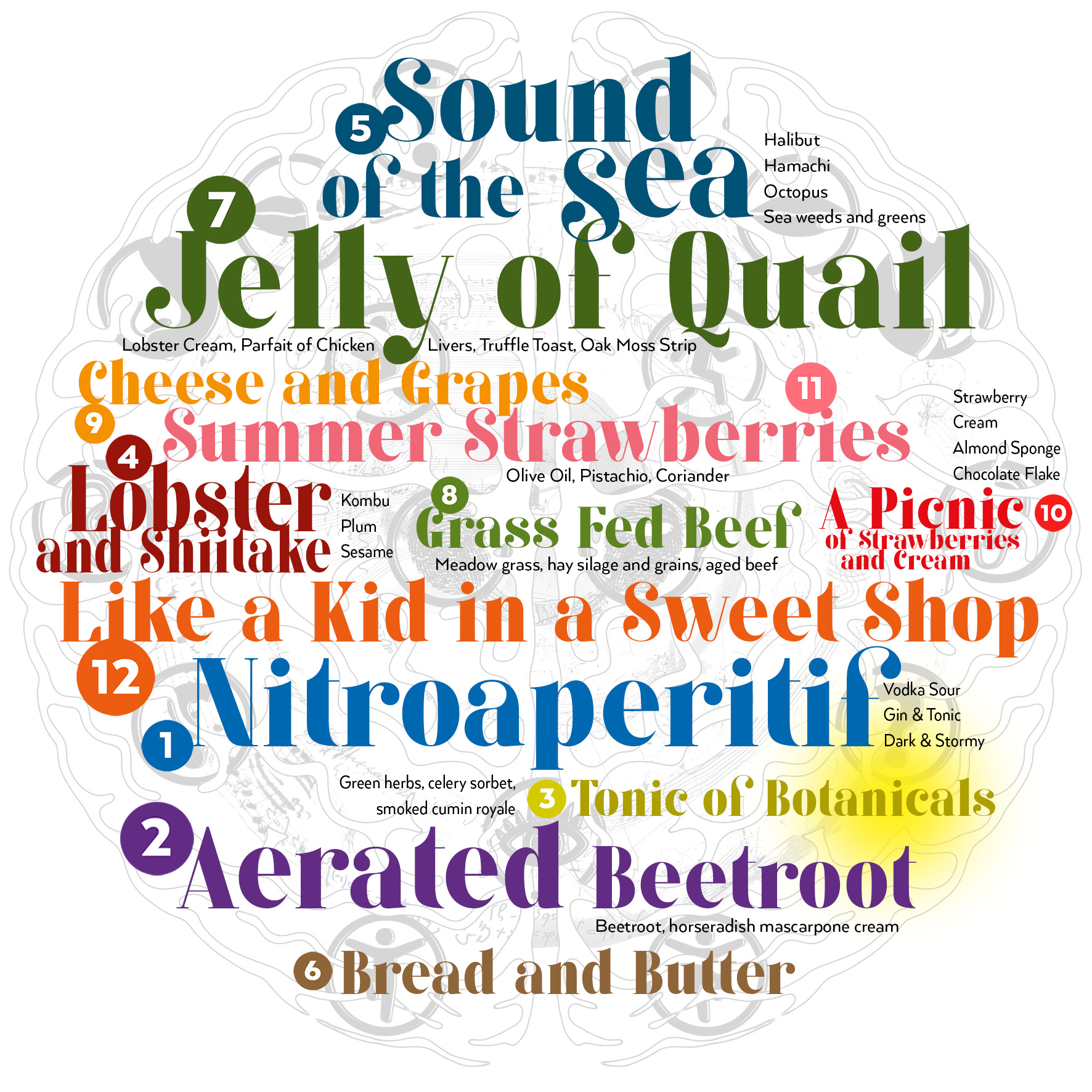Discover

Heraldry, History
and Heston
In 2006 Heston received an OBE for services to British Gastronomy. In 2013 he was granted the right to a coat of arms, upon which appear a series of symbols that sum up his approach to life and cooking.
If you want to go inside the mind of a chef, read on…

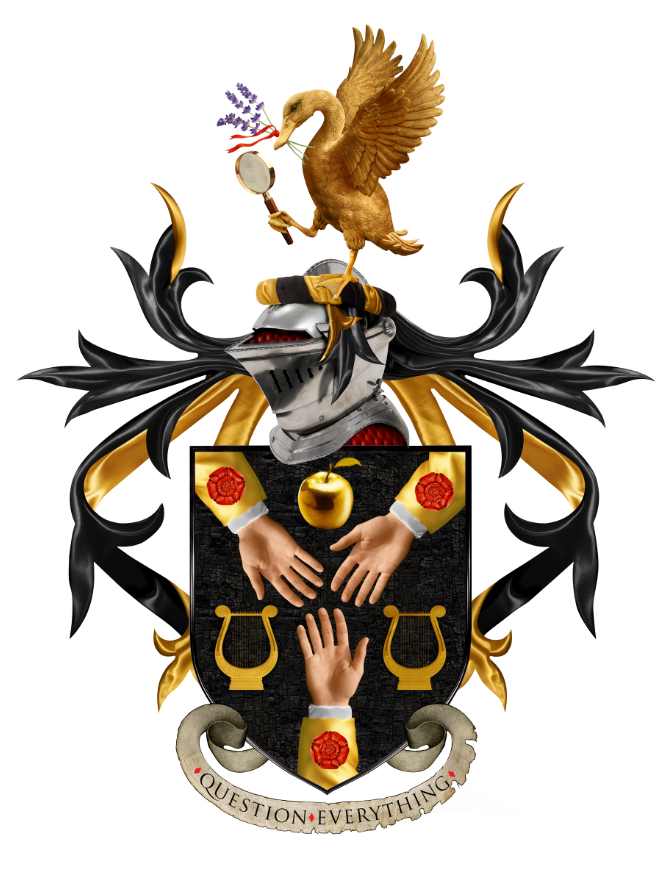
There is
symbolism in
Everything
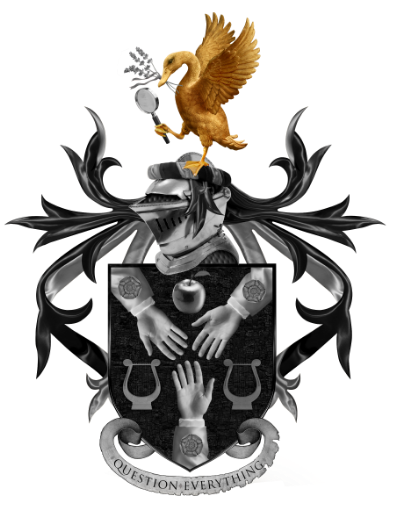
A Golden Duck
Which is, of course, a reference to this restaurant. Caught somewhere between landing and taking off, the duck also symbolises flux, change and impermanence and how we must embrace it.
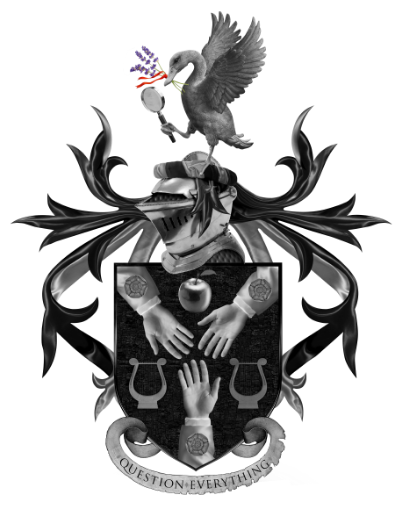
Sprigs of Lavender
Wedged in the duck’s beak, these symbolise the sense of smell, and also the sensory and culinary influence of L’Oustau de Baumanière, the restaurant in Provence that first inspired Heston to become a chef. A symbol thus, also, of memory and nostalgia and how we draw on the past to spring into the future.
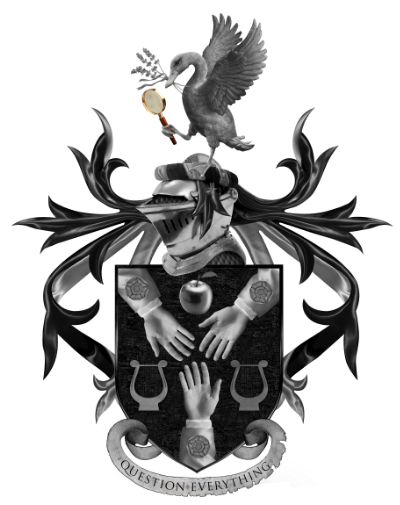
A Magnifying Glass
This symbolises our sense of sight, but also investigation, discovery, awareness and curiosity. The magnifying glass captures the idea of looking closely at things and what’s behind them; of focusing in or zooming out to see what’s there. It enables us to explore the invisible behind the visible – much as Heston explores the way perception and emotion influence how we appreciate food.
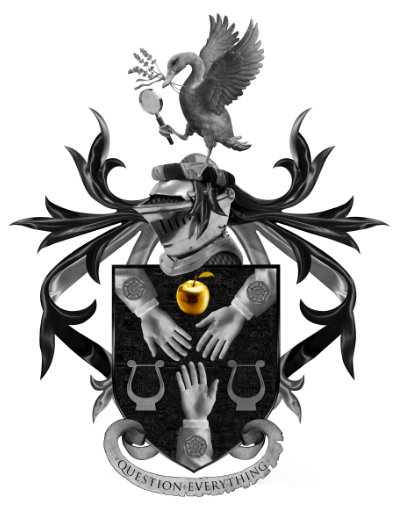
The Apple
It symbolises the sense of taste, but also the spirit of scientific enquiry (think Newton and gravity), both close observation and creative, non-linear thinking. It’s a reminder that we need always to look deeply and push towards discovery.
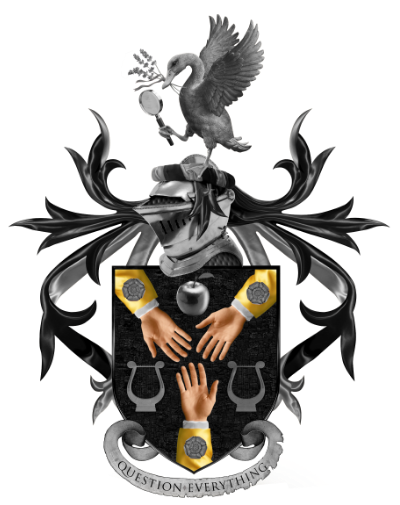
Outstretched Hands
These signify the sense of touch – tactile on the skin, textural on the palate – but are also symbolic of reaching out, towards others and towards discovery. Heston is forever endeavouring to connect people through food and eating, which is after all one of the few true essential and universal activities.
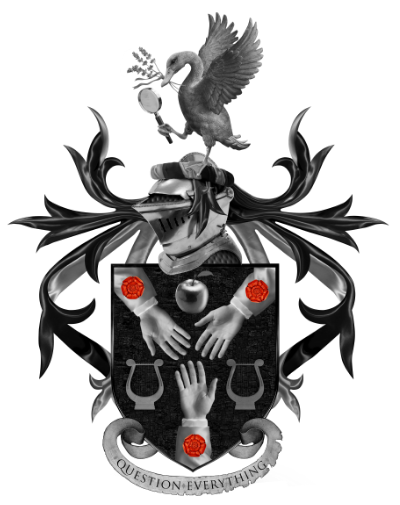
Three Heraldic Roses
On the arms are 3 heraldic roses. Traditional emblems of England, these flowers are a reminder of Heston’s deep and abiding interest in British culinary history, which he has championed wherever possible, re-creating historical dishes such as Meat Fruit, Quaking Pudding and Beef Royal. The number 3 also recalls The Fat Duck’s three Michelin stars.
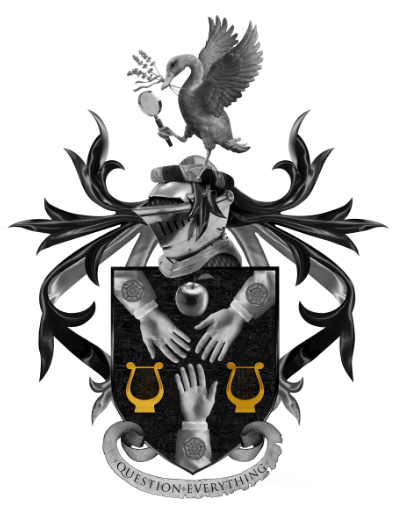
The Two Lyres
Instruments to symbolise the sense of sound, which can be a huge trigger of feelings about a dish. Each of the senses is represented on Heston’s coat of arms because they’re fundamental to his cooking. He believes the more you create dishes that appeal to the senses, the more they resonate with people, enhancing the flavours and inspiring emotions, memories, associations, nostalgia.
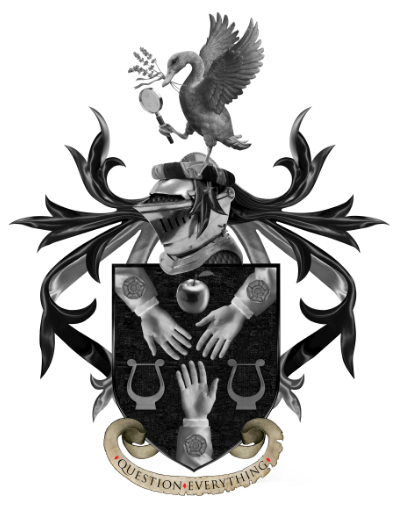
The Motto: Question Everything
This sentiment is at the heart of how Heston cooks and how he looks at the world. It’s a call to use your imagination, and not take anything for granted. Look behind and look deeper. Embrace failure. Examine, explore and make connections. For Heston, that’s the doorway to learning, education and creativity. It’s what being human is all about. Question everything and question every thing.

Question
Everything

There is
symbolism in
Everything

A Golden Duck
Which is, of course, a reference to this restaurant. Caught somewhere between landing and taking off, the duck also symbolises flux, change and impermanence and how we must embrace it.

Sprigs of Lavender
Wedged in the duck’s beak, these symbolise the sense of smell, and also the sensory and culinary influence of L’Oustau de Baumanière, the restaurant in Provence that first inspired Heston to become a chef. A symbol thus, also, of memory and nostalgia and how we draw on the past to spring into the future.

A Magnifying Glass
This symbolises our sense of sight, but also investigation, discovery, awareness and curiosity. The magnifying glass captures the idea of looking closely at things and what’s behind them; of focusing in or zooming out to see what’s there. It enables us to explore the invisible behind the visible – much as Heston explores the way perception and emotion influence how we appreciate food.

The Apple
It symbolises the sense of taste, but also the spirit of scientific enquiry (think Newton and gravity), both close observation and creative, non-linear thinking. It’s a reminder that we need always to look deeply and push towards discovery.

Outstretched Hands
These signify the sense of touch – tactile on the skin, textural on the palate – but are also symbolic of reaching out, towards others and towards discovery. Heston is forever endeavouring to connect people through food and eating, which is after all one of the few true essential and universal activities.

Three
Heraldic Roses
On the arms are 3 heraldic roses. Traditional emblems of England, these flowers are a reminder of Heston’s deep and abiding interest in British culinary history, which he has championed wherever possible, re-creating historical dishes such as Meat Fruit, Quaking Pudding and Beef Royal. The number 3 also recalls The Fat Duck’s three Michelin stars.

The Two Lyres
Instruments to symbolise the sense of sound, which can be a huge trigger of feelings about a dish. Each of the senses is represented on Heston’s coat of arms because they’re fundamental to his cooking. He believes the more you create dishes that appeal to the senses, the more they resonate with people, enhancing the flavours and inspiring emotions, memories, associations, nostalgia.

The Motto:
Question Everything
This sentiment is at the heart of how Heston cooks and how he looks at the world. It’s a call to use your imagination, and not take anything for granted. Look behind and look deeper. Embrace failure. Examine, explore and make connections. For Heston, that’s the doorway to learning, education and creativity. It’s what being human is all about. Question everything and question every thing.

Question
Everything
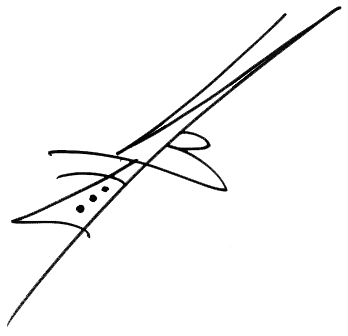
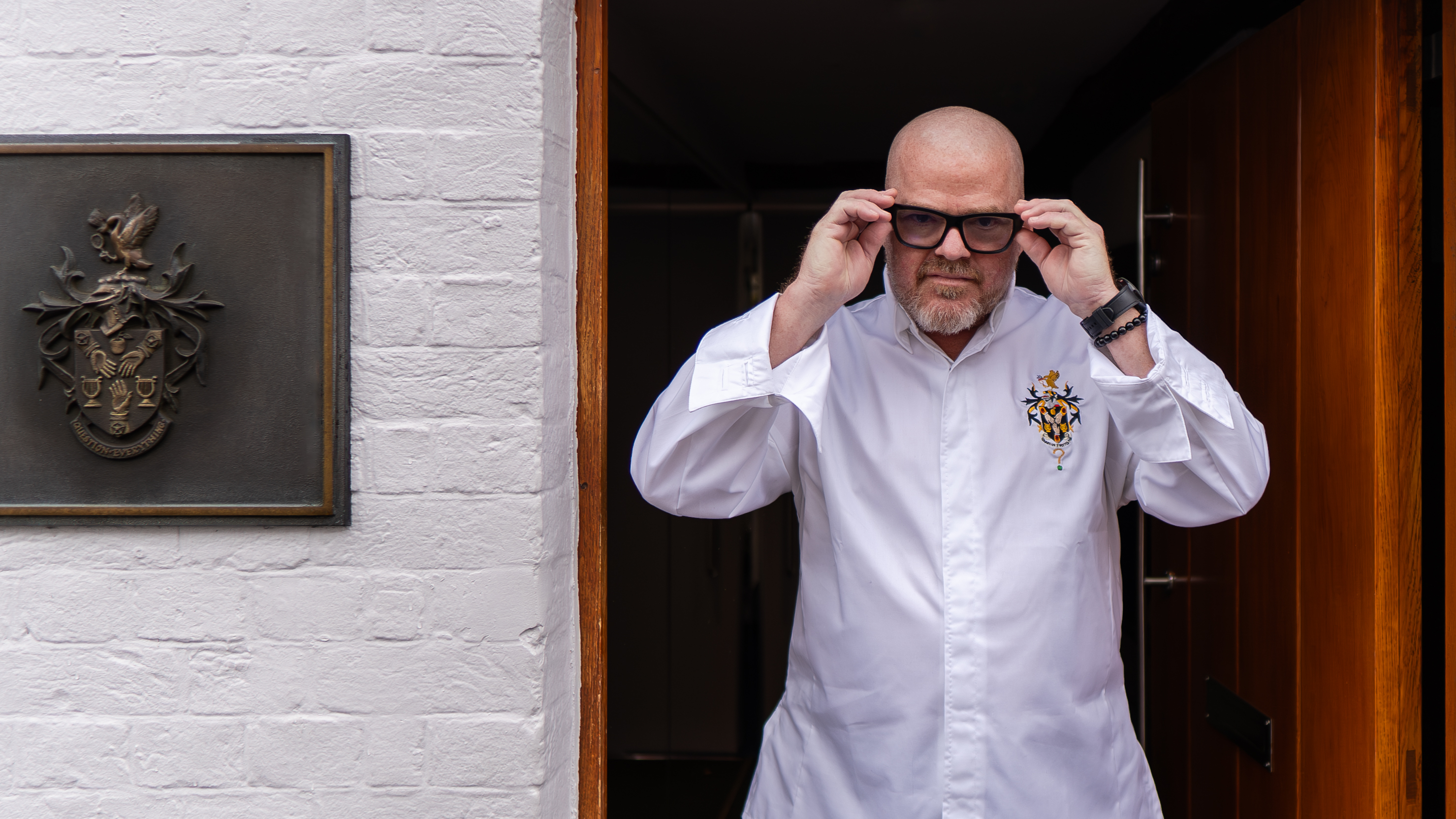
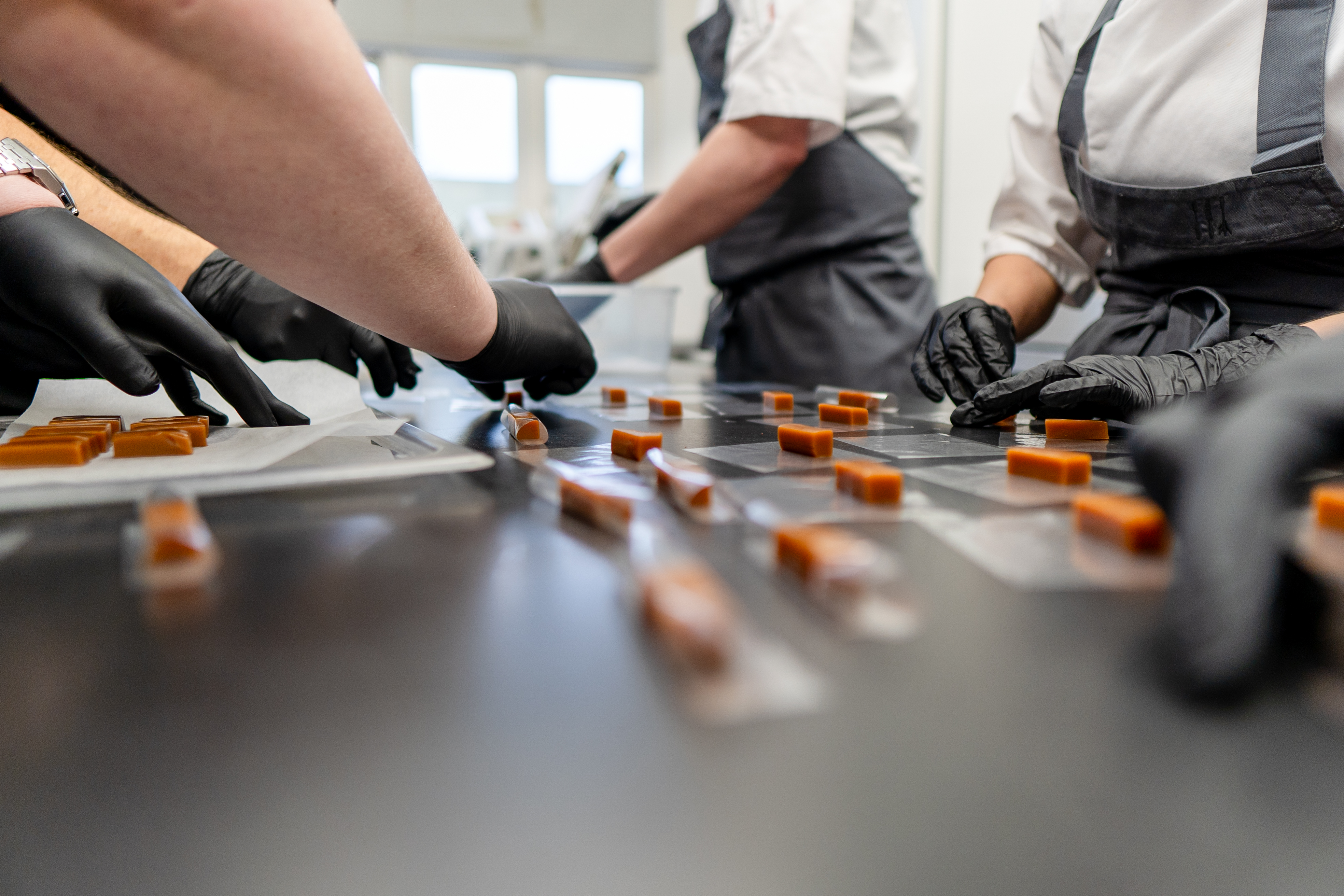
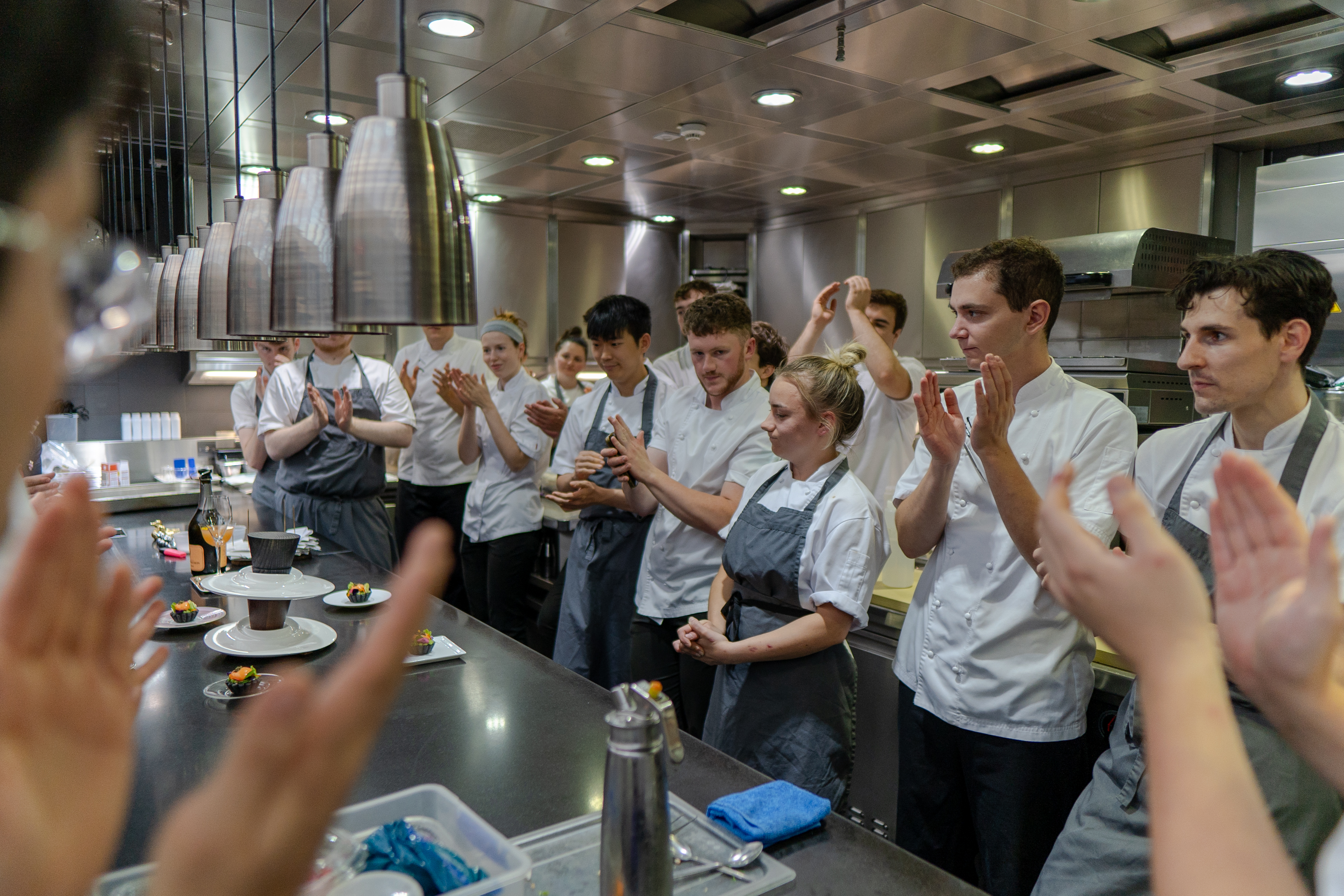
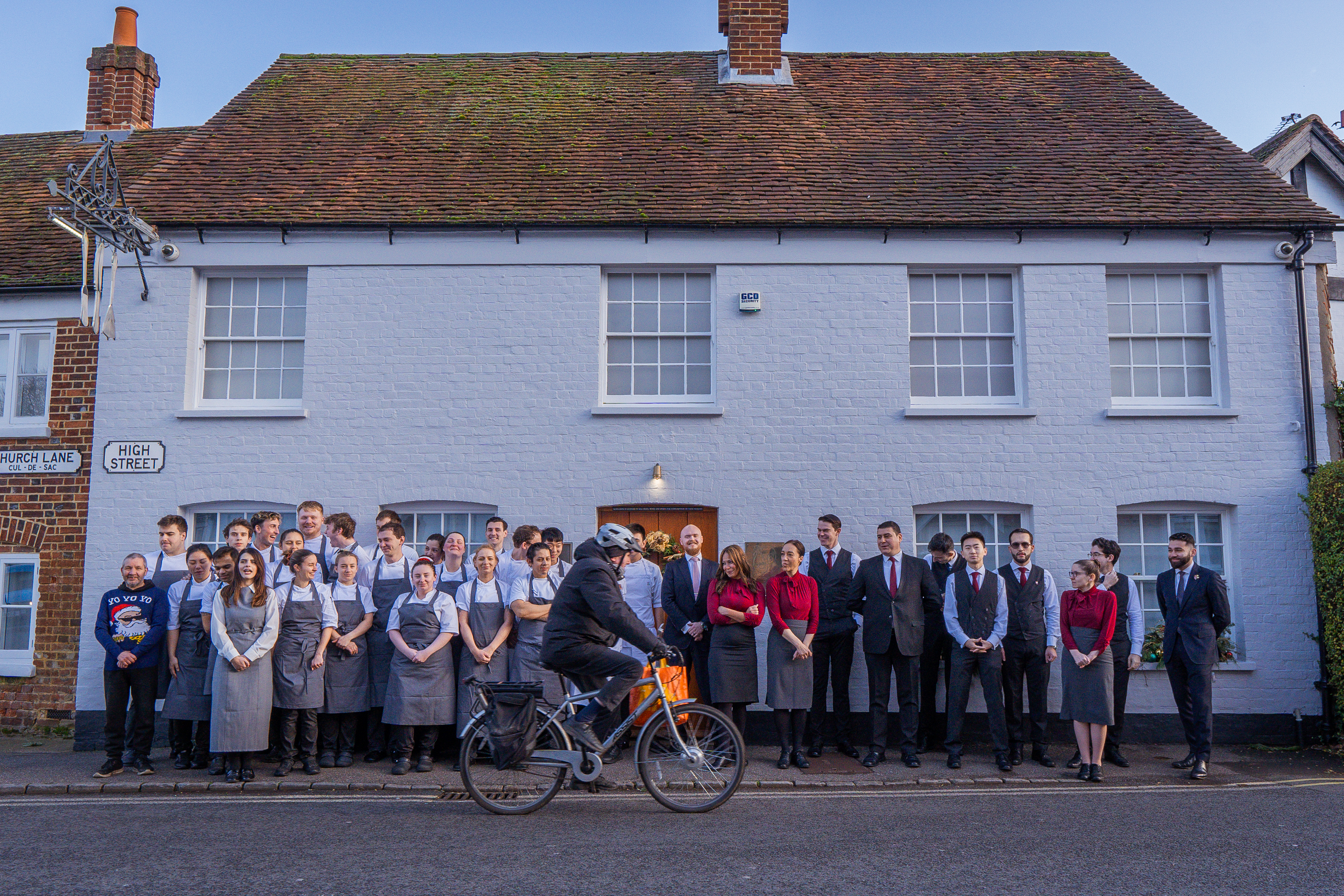
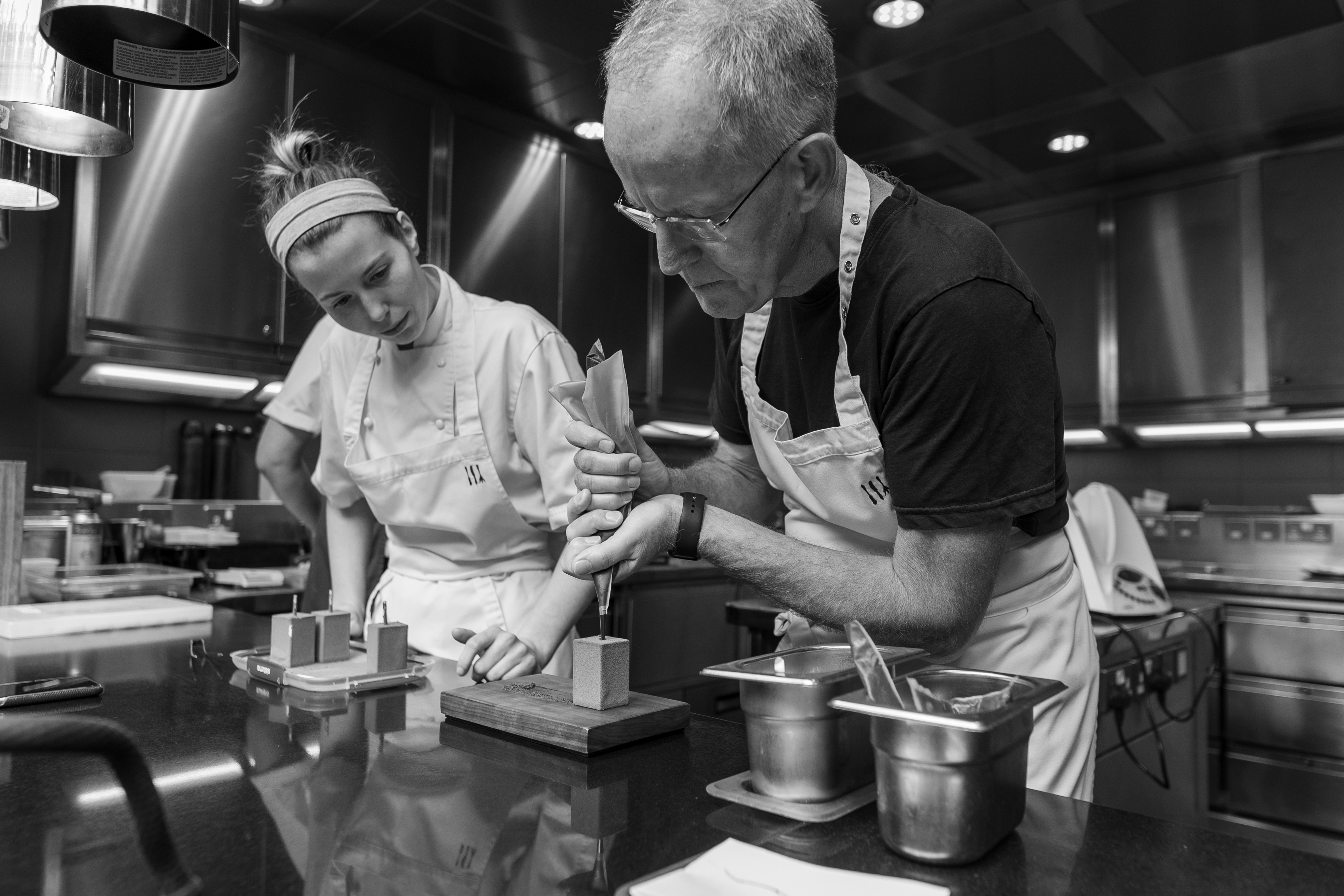
Our Restaurants
Dinner by Heston
London
Historical British gastronomy reimagined to create a spectacular 2-Michelin-star menu in an incredible setting.
Dinner by Heston
Dubai
The one-star sister restaurant of Dinner in London, offering a cutting-edge take on historic British cuisine in a dramatic location.
The Hinds Head
Bray, Maidenhead, Berkshire
The perfect traditional British pub serving exactly the dishes you’d hope for in such a historical place.

